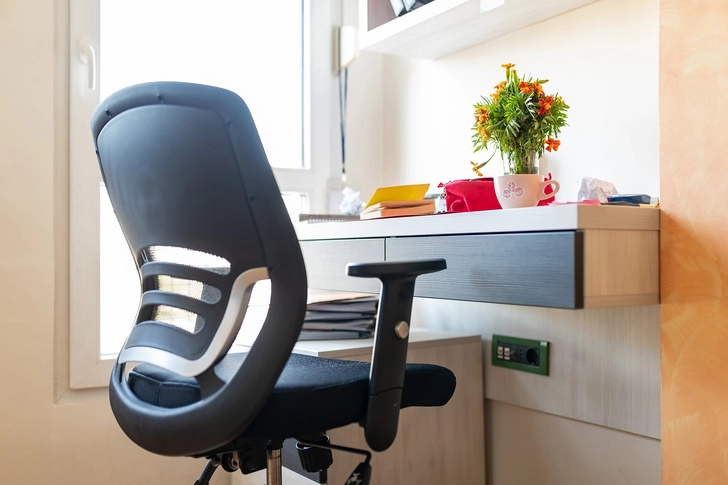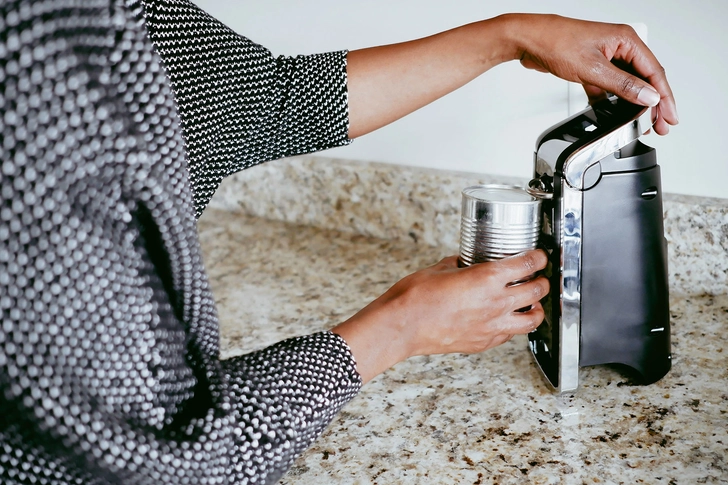- Overview
- Types
- Symptoms
- Causes & Risks
- Tests & Diagnosis
- Treatment
- Living With
- Mobility & Assistive Devices
- Complications
- Caregiving & Support
- Appointment Prep
- View Full Guide
10 Lifestyle Tips for MS Fatigue


What Is MS Fatigue?
If you have multiple sclerosis (MS), you know MS fatigue means more than feeling tired. Some people describe it as wading through mud, both in mind and body. “You can't think, you can't do anything as quickly, because you just feel tired,” says Kathy Zackowski, PhD, associate vice president of research at the National Multiple Sclerosis Society. MS fatigue may happen during the day and often gets worse as the day goes on. And it doesn’t necessarily get better with sleep or a nap. You might feel tired from the minute you wake up in the morning to the moment you go to sleep at night.
This can be frustrating and cause anxiety. You might feel you can’t work at the pace you want. If you are dealing with MS fatigue, find strategies to work with your body on days where you feel low on energy. It’s OK to not do as much when you feel extra tired. But you can still be productive and enjoy your life if you set goals and learn how to work with it.

Make a Daily Plan
Make a schedule that works for you. Note which times of day you tend to feel best. Put the most energy-demanding tasks during your best times. If mornings work well for you, schedule your focused work time then. After lunch, take time to rest and do small tasks, like sorting through emails or running simple errands. Don’t overwhelm your days by doing too much. Make sure to plan for rest periods and lighter activities as well.

Break Down Big Tasks
Take a look at your daily responsibilities and routines. Are they working for you? If not, find ways to break down tasks or update your schedule to fit your needs. If you get stressed when you think about cooking dinner, for example, make a list of everything you need to do to put food on the table that night. That may include buying groceries, chopping ingredients, setting the table, and cleaning the dishes afterward. You can ask other family members to take on certain responsibilities. Or eliminate certain steps when possible. You’ll be amazed at the ways small tweaks to your routine can help you conserve energy.

Just Do It
It’s easy to waste energy debating whether or not to do something -- or when to do it. If it’s a relatively simple task, it might just be easier to get it done. You can plan certain periods in your day to do these small lifts. Then, have at it! Check off a number of simple tasks and you’ll feel great. Before you know it, the dog is fed, you ordered more diapers, and you replied to that email from your co-worker about scheduling a client lunch. Nice job!

Time for Rest
Life is busy. It’s easy to forget that not every minute of the day needs to be filled with an activity. It’s healthy to schedule in rest periods so you can relax, reduce muscle tension, and release stress. How you use your rest time is up to you. Maybe a short nap will help you rejuvenate. Exercises like yoga or a dance break might help you loosen up. Physical activity can help people with MS feel more energetic, especially over time. Whatever you choose to do with your rest break, make sure it’s part of your daily routine. You can break up daily activities into chunks with short rest breaks every half hour or so. Or plan to complete one manageable activity. Then, take a slightly longer break before moving on to the next.

Communicate Your Needs
It can be hard to talk to other people about MS symptoms. You get to decide who you tell about your diagnosis and when. Consider starting out with a close friend or relative. It can help to share some information with them about your symptoms. Only tell them the details you feel comfortable sharing.
If you feel constantly tired at work due to MS, it may be appropriate to talk to your employer about accommodations. Accommodations are the ways your employer can help you do your job better if you have a disability-related symptom. Some common accommodations for people with MS include a more flexible work schedule or the ability to work from home. Each employer is different, so it's a good idea to weigh the pros and cons of revealing your condition to an employer beforehand.

Adjust Your Stuff
It’s easy to forget all of the small ways we use energy during the day. You may not realize that even the chair you sit in while you work can affect your energy level. That’s because bad posture takes a toll on the body. Good posture can reduce fatigue. Consider investing in an adjustable chair for your desk so you can reposition as needed throughout the day. Also, look around you. Reorganize your stuff so you don’t have to move around too much to get the things you need. Place all of your work papers, notebooks, and equipment in the same drawer near your desk. Rearrange kitchen items to put your favorite cooking tools within easy reach. “Think about environments. Can you put things that you use a lot on shelves that don't make you have to raise your arms over your heart? Because that takes more energy from your body,” Zackowski says.

Cool Down
Heat can make symptoms worse for some people. If that’s you, there are ways to stay cool. Use air-conditioning in your house if it’s hot outside. If you want to exercise outdoors, try to do so during cooler times of the day, like early morning or after sunset. Drink cold drinks. You can also use a mister or cooling garment.

Get Support
If you have MS, you might have trouble walking. Or you might find it hard to keep your balance. Even a small limp can make moving around during your day difficult -- and potentially dangerous. Talk to your doctor about whether a cane or walker may help you to move around. Even trekking poles may give a little extra support. You just might get where you need to go more easily and also conserve energy.

Simplify in the Kitchen
If the thought of cooking a meal or buying groceries is stressful, take a deep breath. You can eat well, one step at a time. Try scheduling meal prep into your weekly routine. Block off a couple of hours on the weekend to plan recipes or chop vegetables. Common kitchen tools like a slow cooker, food processor, and electric can-opener can help you save time and energy when making meals. If preparing ingredients feels like a lift, buy chopped frozen fruits and vegetables. If you don’t have time or energy for a trip to the grocery store, consider using a delivery service. All you have to do is choose your ingredients online and place the order. Then, the bagged groceries come to you!

Prioritize Sleep
Sleep matters. Certain habits can help you get a good night’s rest and fight drowsiness the next day. Don’t exercise or eat a heavy meal too close to bedtime. Avoid alcohol and caffeine in the late afternoon and evening – even chocolate may be a no-go. Dim the lighting. Also, create a sleep routine. Do a few of the same things before bed each night. Take a relaxing bath, light a candle, or listen to soothing music before you go to sleep. Gentle stretching exercises like yoga can help your body wind down. Set an alarm to wake you up at the same time each morning.
PHOTOS:
Slide 1: Moment/Getty Images
Slide 2: Moment/Getty Images
Slide 3: E+/Getty Images
Slide 4: Moment/Getty Images
Slide 5: DigitalVision/Getty Images
Slide 6: E+/Getty Images
Slide 7: iStock/Getty Images
Slide 8: Moment/Getty Images
Slide 9: DigitalVision/Getty Images
Slide 10: Moment/Getty Images
Slide 11: Moment/Getty Images
SOURCES:
Kathy Zackowski, PhD, associate vice president of research, National Multiple Sclerosis Society
Brown University Health: "Posture and How It Affects Your Health."
Cambridge University Hospitals NHS Foundation Trust: "Seating and Ergonomics."
Cleveland Clinic: "MS and Fatigue."
Field Report: "Time Management: 10 Strategies for Better Time Management."
Hopkins Medicine: "Multiple Sclerosis and Mental Health: 3 Common Challenges."
MS Australia: "Fatigue."
MS Canada: "Fatigue," "Living Well with Fatigue."
MS Society UK: "Fatigue: Managing Fatigue," "Sleep and MS," "Stress and Anxiety."
MS Trust: "Fatigue," "Telling People About Your MS," "Tips for Fatigue-Friendly Cooking."
National Multiple Sclerosis Society: "Accommodations," "Disclosure Decisions," "Fatigue," "Heat Temperature," "Reclaiming Control," "Walking Gait Difficulties."
PMC: "Walked Faster."
St. Joseph's Healthcare Hamilton: "How to Save Your Energy."
U.S. Department of Veterans Affairs: "Taking Breaks: When to Start Moving and When to Stop."